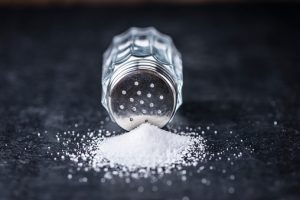 Whether you have high blood pressure or just switching to a healthier lifestyle, you are often told to cut back on your salt intake. But how do you know for sure whether you are having too little, too much, or just the right amount?
Whether you have high blood pressure or just switching to a healthier lifestyle, you are often told to cut back on your salt intake. But how do you know for sure whether you are having too little, too much, or just the right amount?
Well, there are telltale signs that indicate whether you are consuming too much salt. If you have high blood pressure or another health condition, you will want to watch out for these signs.
5 signs that you’re having too much salt
Advertisement
Your rings are tighter: If you haven’t gained weight but your rings are feeling tight, or even difficult to take off, this is a sign that you are consuming too much salt. Salt causes water retention, which in turn makes your fingers swell.
Your mouth is dry: Too much salt can disrupt your water levels, resulting in a dry mouth. To fix this, you’ll have to drink more water.
You have a headache: Studies have shown that consuming high amounts of salt is associated with headaches due to increased blood pressure. On the other hand, other studies found that excess salt was linked to headaches regardless of blood pressure levels, so if you’re experiencing headaches after a meal it may be because your food was too salty.
You are peeing more often: Not only does increasing your fluid intake prompts you to go to the bathroom more, but so does eating too much salt. This is because your kidneys are working harder to rid the body of that excess salt.
You can’t think clearly: Excess salt leads to dehydration, which is linked to foggy thinking and poorer concentration. Studies have shown that when women were mildly dehydrated they performed worse on cognitive tests, compared to when they were better hydrated.
If you experience any of these signs, your salt intake is probably too high. This can be particularly dangerous if you have high blood pressure. But even without other health problems, it’s best that you cut back on salt to avoid these symptoms and ensure your blood pressure levels stay healthy.
The recommended daily salt intake is less than 2,300 mg. The best way to ensure you’re not overdoing it is by cooking majority of your meals yourself and reading product labels carefully.
